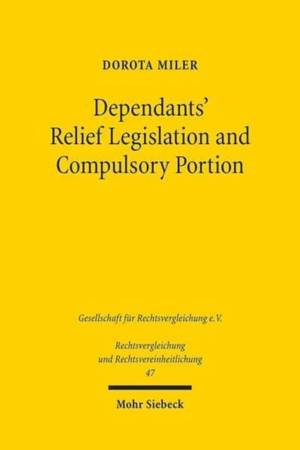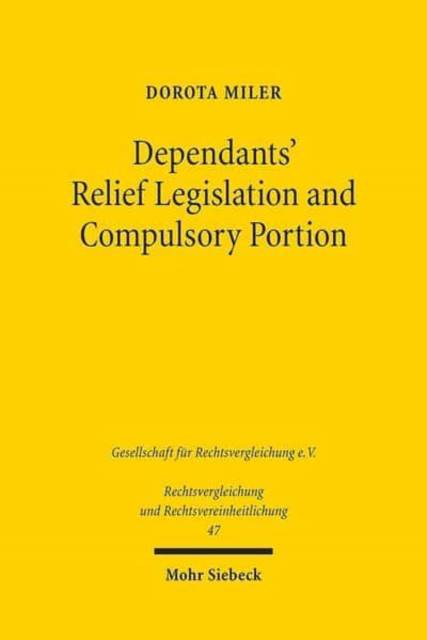
- Afhalen na 1 uur in een winkel met voorraad
- Gratis thuislevering in België vanaf € 30
- Ruim aanbod met 7 miljoen producten
- Afhalen na 1 uur in een winkel met voorraad
- Gratis thuislevering in België vanaf € 30
- Ruim aanbod met 7 miljoen producten
Dependants' Relief Legislation and Compulsory Portion
Limitations on Freedom of Testation in British Columbia and Germany in Comparative Perspective
Dorota Miler
€ 157,95
+ 315 punten
Omschrijving
Freedom of testation allows an individual to make effective on his death dispositions of his property on the event of his death. Dependants' relief legislation in British Columbia and compulsory portion in Germany limit this freedom by providing testator's family members with a portion of the estate. However, out of the two, only the legislation gives courts the discretion to change testamentary provisions, by making them, in some cases, entirely ineffective. A comparative analysis of the application, legal character, history and purpose of the limitations leads to the conclusion that the freedom of testation is significantly more limited under British Columbia's legislation than it is under the German law. The author proposes a solution that increases the freedom, adds predictability and reduces subjectivity of the application of the dependants' relief legislation in British Columbia.
Specificaties
Betrokkenen
- Auteur(s):
- Uitgeverij:
Inhoud
- Aantal bladzijden:
- 236
- Taal:
- Engels
- Reeks:
- Reeksnummer:
- nr. 47
Eigenschappen
- Productcode (EAN):
- 9783161554704
- Verschijningsdatum:
- 1/10/2017
- Uitvoering:
- Paperback
- Formaat:
- Trade paperback (VS)
- Afmetingen:
- 155 mm x 231 mm
- Gewicht:
- 272 g

Alleen bij Standaard Boekhandel
+ 315 punten op je klantenkaart van Standaard Boekhandel
Beoordelingen
We publiceren alleen reviews die voldoen aan de voorwaarden voor reviews. Bekijk onze voorwaarden voor reviews.










